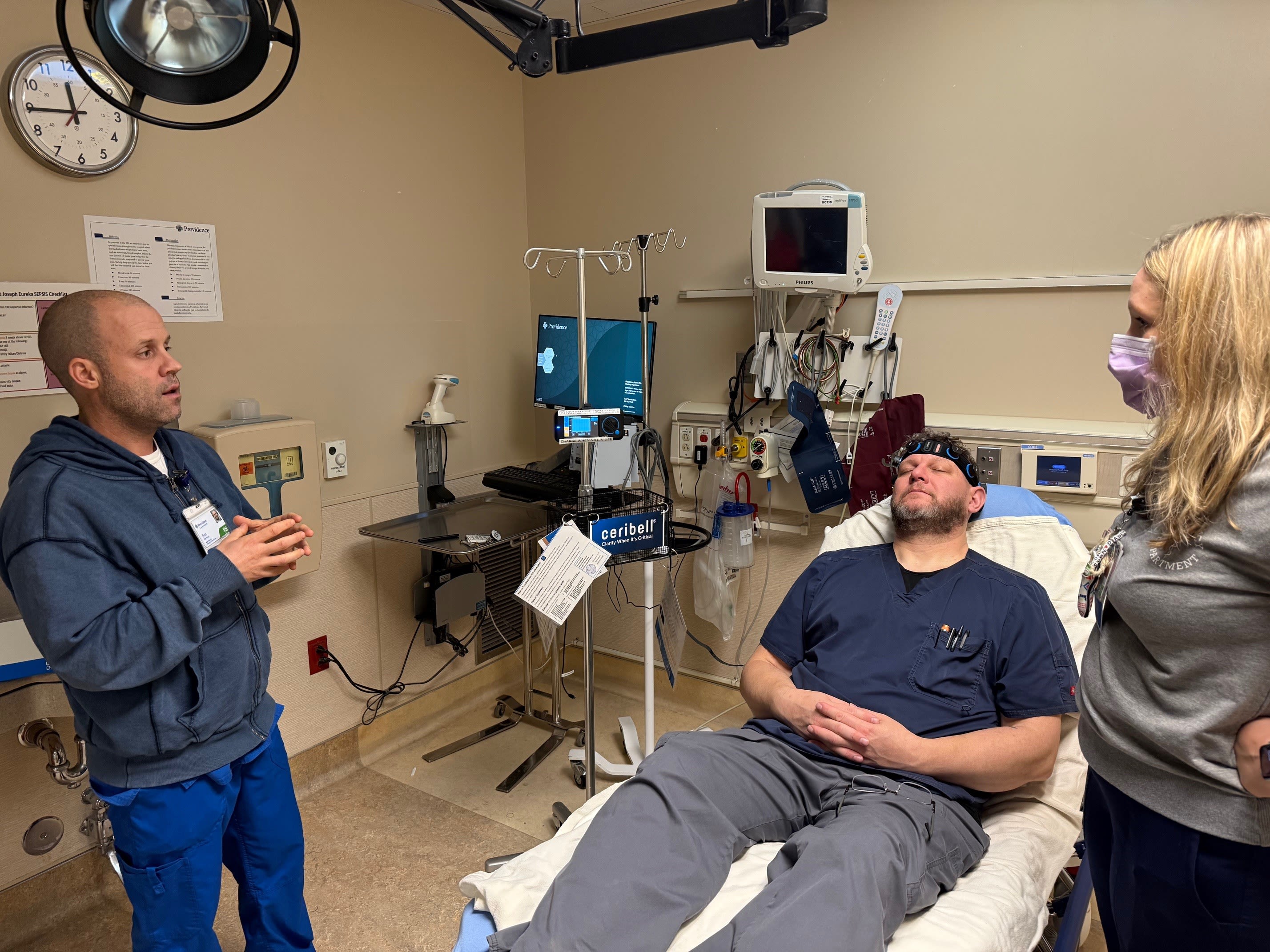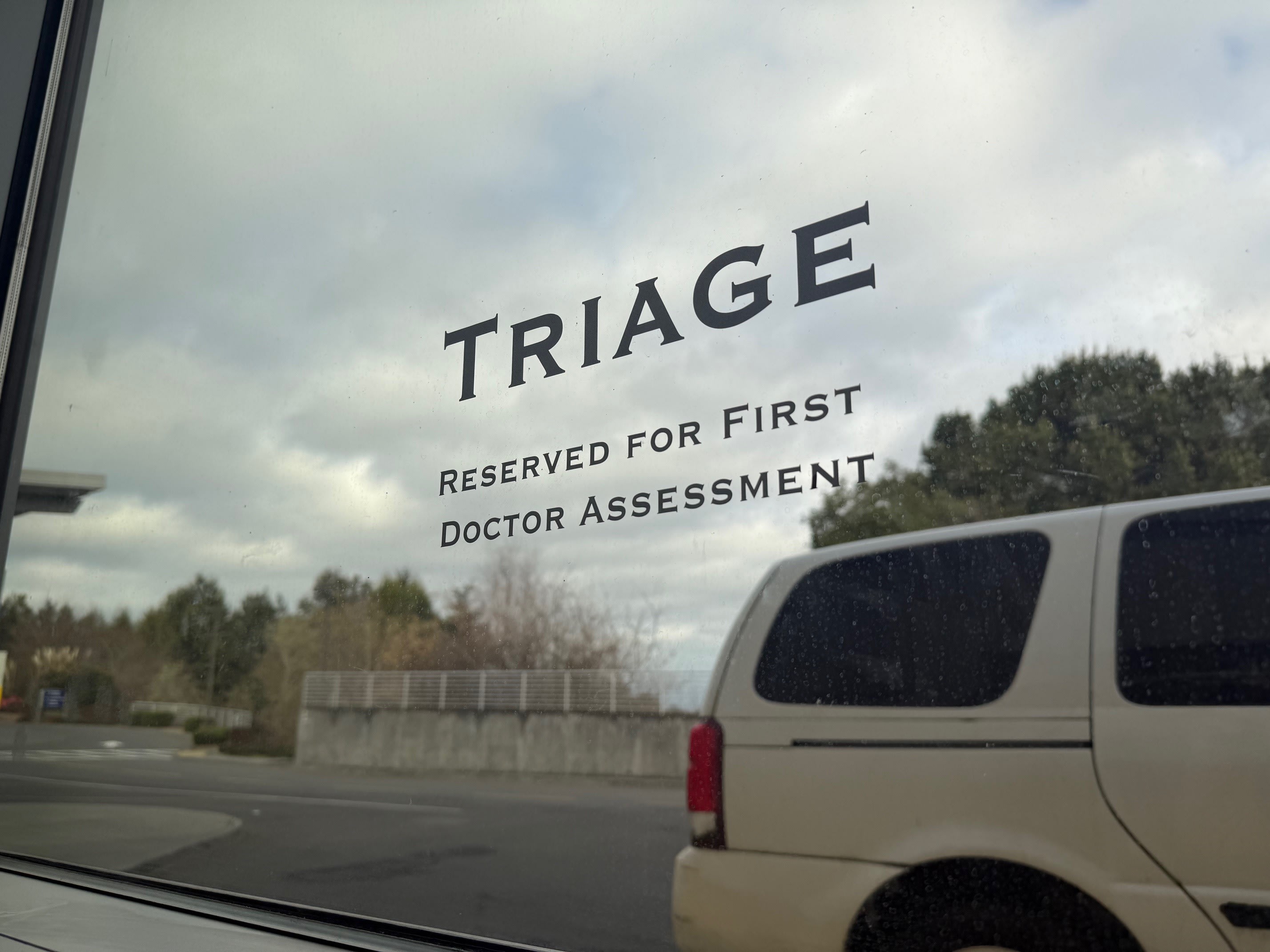A breast cancer survivor's simple message
Every October, Eureka resident Debbie Fulk posts a simple message on her Facebook page: “Don’t be afraid, go get your mammogram.” October marks the launch of Breast Cancer Awareness month across the U.S. and is a chance for women’s health advocates everywhere to join Debbie and raise awareness on the importance of annual screenings and mammograms.
Good thing for Debbie that she listened to her own advice because annual mammograms have helped her detect cancer – twice. Debbie is currently undergoing treatment at the Providence St. Joseph Hospital Cancer Program.
“My mom had breast cancer, so I was really scared when I was first diagnosed,” shared Debbie, who moved from Hollister, CA to Redding for care the first time she found a lump 13 years ago. “I tell everyone to believe in the people who are helping you and don’t be scared. Treatments are continually improving, it’s not as bad as the old days.”
Among those helping Debbie during this current bout with cancer are the nurses and doctors at St. Joseph Hospital in Eureka. Akram Shayeb, MD, a medical oncologist and hematologist with the cancer program has been a compassionate and caring guiding light according to Debbie.
“I love Dr. Shayeb! He has a great aura and answers all my questions. I feel very comfortable with him. I wouldn’t trade him for the world.”
According to the United States Preventative Services Task Force, women who are 50 to 74 years old are at average risk for breast cancer and should get a mammogram every two years. Women who are 40 to 49 years old should talk to their doctor or other health care provider about when to start and how often to get a mammogram.
For those women who heed Debbie’s advice and also the urging of their health care providers during October, research suggests that they increase their chances of finding breast cancer at an early stage.
“Regular mammograms can help find breast cancer at an early stage, when treatment is most likely to be successful,” says Dr. Shayeb. “Mammograms can often find breast changes that could be cancer years before physical symptoms develop. Women who have regular mammograms are more likely to have breast cancer found earlier, are less likely to need aggressive treatments like surgery to remove the entire breast (mastectomy) or chemotherapy, and are more likely to be cured. Screening mammograms can lower the risk of dying from breast cancer.”
Getting her treatments close to home has meant the world to Debbie. She did not want to have to move again to receive care. She has been thrilled with the warmth and compassion of those caring for her locally.
“Everyone has made me feel so comfortable, it’s like I’m their most important patient!”, said Debbie. “I actually look forward to my chemotherapy sessions because of the people. I’ll be sad when my treatments are over.”
For more information on Breast Cancer Awareness Month, please visit the National Breast Cancer Foundation website.



